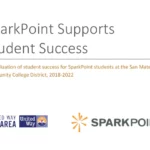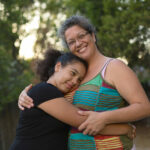Search
Meeting the Moment in the Fight Against Poverty
September 15, 2020
Stepping into the role of CEO of United Way Bay Area takes my professional journey full circle, as we collectively meet this moment in history. Right now fire fighters across our region continue to battle blazes in the aftermath of the LNU and CZU lightning complex fires. Thousands of Bay Area residents have been displaced from their homes, and others face looming rent bills even as Governor Newsom signs anti-eviction legislation into law.
For far too many of us, the problems of housing insecurity and an uncertain future were already a reality well before the pandemic and fires raged throughout California. When I pause and reflect on the big job ahead of us, however, I feel extremely fortunate to have worked for a variety of nonprofit organizations, gathering experiences that could help meet a moment like this head-on.
My first nonprofit job out of college, running a local food pantry for Project Open Hand of the East Bay, gave me a close look into what life is like for someone struggling to afford basic necessities while simultaneously battling HIV/AIDS. For someone living on an SSI Disability check, simply having a place to live can mean the difference between life and death. At that time, nearly all of our clients were housed, and although conditions ranged from people living in single family homes to those living in basement apartments with poor lighting and ventilation, they all had roofs over their heads.
That started to change in the late 1990s, when investors swooped in to purchase these apartment complexes and redevelop them into housing for commuters to San Francisco. Buildings changed hands, and soon many of our clients were left without permanent housing, living in their cars, on the streets or in the local shelter. Disrupted and displaced, a lot of people got sicker and died.
I began to ask questions. Why was this happening? Why was it that, in neighborhoods that provided housing options for some of our most vulnerable neighbors, apartment buildings were now being bought, people were getting evicted and new people were moving in? Why did some people have to move further and further away from jobs, extended families and support systems to find more affordable places to live only to strain their quality of life? This questioning led me to pursue new roles where I could actively work to address these issues.
I joined the Industrial Areas Foundation, West Coast Vision, where we studied the exact same issues of gentrification and displacement that affected our region’s families, unions, churches, temples and other places of worship. While there, I learned the tenets of community organizing and met some pioneers in the field of community development. I was deeply inspired to see nonprofit organizations and communities coming together to solve problems in their neighborhoods by building affordable housing and establishing match-savings accounts to send kids to college.
Next, I was lucky enough to have a chance to work for one of these nonprofits as a Loan Officer for Lenders for Community Development (now the Opportunity Fund) in San Jose, which provided microloans for people to start their own businesses. It was really eye-opening to see the power of people to take control over their own economic futures as solopreneurs or working in partnership with their community members by establishing worker-led cooperatives.
Ultimately, however, a small-business owner’s success depends largely on finding housing that they can afford. With rents and housing prices skyrocketing throughout the Greater Bay Area, it was easy to see that the free market wasn’t keeping up with demand. This dynamic undermined the very self-sufficiency that people were trying to build.
I moved back to Berkeley to work for Affordable Housing Associates (now Satellite Affordable Housing Associates) to begin working directly on this issue. For the next eight years, I had the opportunity to work at a nonprofit organization that built affordable housing for working families, seniors and vulnerable individuals with special needs, such as people living with HIV/AIDS. This eventually led me to Housing Trust Silicon Valley, where I served as CEO for 12 years, bringing together the private sector, foundations and nonprofits through financial investments and public policy to help over 21,000 families in the Bay Area find an affordable place to live.
Now, as CEO for United Way of the Greater Bay Area, I am excited to bring my professional and life experience to this role. I believe that almost every issue that makes it difficult for people to get ahead in the Bay Area all gets rooted in affordable housing, job training and the lack of a strong safety net. If we can merge these focuses together – with a strong community voice leading the way – we will be able to address the root causes of poverty and help more individuals and families stay and thrive in more equitable Greater Bay Area.
I look forward to continuing this conversation in the weeks and months ahead.
P.S. Don’t miss our upcoming webinar, Racial Equity & Housing in the Bay Area, for background on the Bay Area housing crisis, how racial inequality has persisted in housing over time, and the impact of COVID-19.


